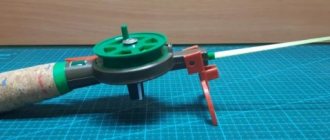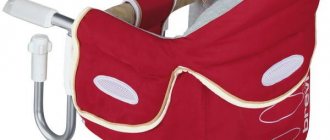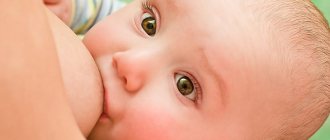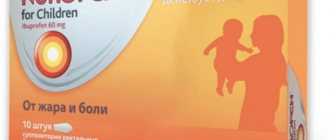Calcium during breastfeeding: why is it needed and where to get it
Naturally feeding a baby is sometimes very difficult for a mother.
Powerful hormonal changes and increased stress on the body during milk production require an increased dose of vitamins and beneficial microelements. Often, the mother does not have enough proper balanced nutrition, then the female body has to additionally consume multivitamin complexes and mineral supplements to food.
The selection of such drugs should be entrusted to a doctor; the treating gynecologist or therapist can recommend the right remedy. As a rule, calcium is first prescribed during breastfeeding, because its consumption during this period increases significantly.
It’s not for nothing that some nursing mothers go on a milk diet when breastfeeding, hoping that foods high in calcium can restore women’s health.
An additional source of calcium during breastfeeding is necessary for the complete recovery of a woman’s body after childbirth.
Why is calcium so important?
Even during pregnancy, important microelements and vitamins are transferred from the mother to the baby to build the foundation of his small body, and calcium is no exception.
During breastfeeding, its additional source is necessary for the complete restoration of the woman’s body, as well as her hormonal levels.
The mother absorbs the beneficial microelement only in the amount that remains after the baby, so it is necessary to consume it several times more.
For this purpose, special vitamin complexes have been created for nursing mothers; with their help, not only the mother receives a sufficient amount of useful substances, but also the newborn receives a portion of fortified milk. In addition to restoring the body after childbirth, this important element performs a number of other vital functions, which is why it is so important for the body, and these are:
- is a component of bone tissue and the basis of tooth enamel;
- reduces the influence of harmful cholesterol;
- strengthens the walls of blood vessels;
- improves the condition of hair and nails;
- prevents the formation of blood clots;
- improves the functioning of the endocrine system;
- adds energy.
Otherwise, the female body itself tells the young mother that the amount of calcium is not sufficient. This is usually indicated by:
- deterioration of teeth;
- active onset of hair loss;
- separation of the nail plate;
- abnormal blood counts;
- sudden mood swings;
- failure in the endocrine system.
For infants, the lack of vitamins also has a negative effect - problems with teeth appear, the condition of blood vessels worsens, allergies may occur, and rickets is not excluded in the future.
Daily intake for hepatitis B
For a nursing mother, it is important not only to consume the beneficial substance, but also to replenish the amount that the baby consumes.
The daily dose during lactation is one and a half grams; the mother can eat this portion for breakfast in the form of a glass of milk, preferably low-fat, and several pieces of hard cheese. This norm exceeds the dosage of an ordinary person by 1.5 times.
It is important to remember that when preparing the correct diet for a nursing woman, these parameters should not be exceeded. Since an excess of this element often leads to hypercalcemia.
It can provoke a number of negative consequences - lead to depression, reduce appetite, cause nausea, malaise, and drowsiness. Therefore, you need to know moderation in everything - limit yourself to excessive consumption of foods rich in calcium.
The daily calcium requirement for breastfeeding is 1.5 g, which the mother can obtain both from food and from appropriate medications.
Calcium-rich foods for nursing mothers
In addition to dairy products (cottage cheese, fermented milk products, eggs), the diet menu during breastfeeding can be supplemented with equally healthy ingredients. For example:
- almonds, can be added as a dessert several times a week, strengthen hair and nails well;
- sesame seeds, a tablespoon for salad dressing completely covers half the daily requirement;
- legumes, but excluding canned products;
- dried fruits, especially figs, are not only a source of calcium, but also prevent colds;
- regular bread should be replaced with products made from corn or rye flour;
- apples, banana - these are the fruits that are allowed for a nursing mother;
- fresh greens contain a whole bunch of useful substances.
Calcium supplements for nursing mothers
When consulting with your doctor, you should definitely mention breastfeeding, then the list of approved drugs will be shortened.
It is believed that you should only drink additional sources of vitamins and calcium while breastfeeding if there is an acute shortage.
In fact, active biological supplements or vitamin complexes do not have a negative effect; rather, on the contrary, they only supplement the body with useful substances. Widely known:
- Calcium D3 Nycomed is an officially approved drug for breastfeeding; it contains a sufficient amount of vitamin D for maximum absorption;
- Elevit is also a remedy recommended for lactation. Contains the entire complex of vitamins, supporting the entire body as a whole, but is not aimed at replenishing the proper level of calcium;
- Complivit Calcium D3 is a drug combined with vitamin D that regulates calcium metabolism in the body. Approved for use with caution during lactation.
- Calcium gluconate is the cheapest analogue; in its pure form it is absorbed a little worse than in combination with other microelements.
Taking calcium supplements will be a good addition to a proper and balanced diet for a nursing mother, but overdose should be strictly avoided.
It is up to the mother to decide whether to take additional food supplements or not.
But if a nursing mother wants not only to raise a healthy and strong child, but also to look good, take care of herself and her health, then a complex of nutrients will not hurt.
Taking calcium-containing medications will be a good help for a nursing mother to have a proper and balanced diet. It should be remembered that it is better to choose such a remedy together with a therapist.
Source: https://prostoGV.ru/healthandbeauty/medicaments/calcium-pri-gv
Pharmacy Supplements: Pros and Cons
Not always proper nutrition can provide the body with enough calcium. After all, a nursing mother must drink a lot of liquid, which washes it out of the tissues. And a microelement deficiency may turn out to be such that to eliminate it you will need to eat mountains of healthy food, which, of course, is unrealistic.
Then the question is inevitable: is it possible to drink calcium while breastfeeding? Sometimes an appointment is mandatory. But only a doctor can decide whether a nursing mother needs biological supplements with it, as well as choose the dose.
Excess of the substance can cause arrhythmia and hypertension, poor appetite and nausea. This will interfere with lactation until it stops prematurely.
There are several options to eliminate component deficiency using pharmaceutical drugs:
- Calcium d3 nycomed during breastfeeding is good because it contains an additional component that allows the microelement to be completely absorbed. If the mother takes the drug, the child’s risk of rickets is reduced due to the presence of vitamin D. Calcemin will provide the same effect.
- "Elevit" and "Mama's Health" also contain microelements. But they also have other components, these are complex preparations. Therefore, they contain less Ca than the previous two.
- Calcium gluconate during lactation is the most affordable way to strengthen bones and teeth. But it is less absorbed than complex products. To minimize calcium loss, it is taken 2 hours after a meal and washed down with milk.
When choosing pharmaceutical products as the main ones to eliminate microelement deficiency, it is worth considering that:
- many drugs have contraindications associated with diseases in the mother (kidney problems, sarcoidosis);
- calcium tablets may cause intolerance in a child;
- Adverse reactions (diarrhea, constipation, stomach pain) also occur in both when taking dietary supplements with calcium;
- an artificially created microelement is absorbed worse than that obtained from food;
- formulations with Ca should not be taken simultaneously with cardiac glycosides.
In an effort to use calcium to recover faster after childbirth and improve the quality of breast milk, you should not reach the point of fanaticism. If there is a deficiency of a microelement, it is better to first try to eliminate it with proper nutrition. But if the doctor believes that a young mother needs pharmaceutical drugs more, she should not refuse. Proof of their benefits will be good health and a healthy, active baby.
"Kalcemin"
During lactation, Calcemin is indicated. The drug is able to regulate phosphorus-calcium metabolism. The components of the medicine enter the child’s body through mother’s milk.
Calcium gluconate
Another effective drug designed to increase the level of trace elements in the body. Compared to other products, it has one significant drawback. Absorption of the substance occurs much more slowly.
Calcium during breastfeeding, an important mineral for a nursing mother
During lactation, all the minerals and vitamins found in the mother’s body pass through the milk to the baby, and even if the woman doesn’t have enough of something, the baby will still “take” what it has from the mother’s bone tissue and other reserves.
One of the especially sought-after microelements is calcium - during breastfeeding, this is a very important element for a nursing mother, and its deficiency immediately affects the condition of a woman’s hair, skin, nails and teeth. With a severe lack of this microelement, the musculoskeletal system suffers, and any household injury can result in a fracture.
The importance of calcium for a nursing woman
The importance of calcium for a nursing woman is enormous - this microelement is the main component of bone tissue, nails, teeth, and hair.
In addition, Ca takes an active part in the process of maturation of blood cells, blood clotting, affects the permeability of the vascular wall and is the main “fighter” against allergic reactions.
With a deficiency of this microelement in the body of a nursing mother, various problems arise:
- hair loss.
- brittle nails.
- dryness and flaking of the skin, including allergic rashes.
- carious lesions of teeth, crumbling of teeth.
If a breastfed baby does not have enough calcium, which comes from milk, then he develops signs of rickets:
- deformation of the bones of the skull and chest.
- weight deficiency.
- late teething.
- cramps of the calf muscles.
Of course, the listed conditions are already critical and require immediate medical attention. In most cases, calcium reserves in the body of a breastfeeding woman can be replenished with the help of high-quality foods.
Products containing calcium
Most Ca is found in animal products, which should be present daily in the diet of a nursing mother. Below are foods containing calcium from animal and plant sources:
- Whole milk
- 1 glass of this product contains the daily requirement of calcium for an adult, but often during lactation, whole milk causes diarrhea in a child, skin rashes and allergies. Some nursing mothers cannot drink whole milk due to individual intolerance - nausea, bloating, stomach pain after drinking a glass. - Fermented milk products
- these include cottage cheese, cheese, sour cream, kefir, natural yogurt. A nursing mother should consume these products daily, and it is best to choose natural fermented milk that does not contain dyes, sweeteners and flavors - such products will not only not replenish calcium reserves in the body, but will also cause allergies in the baby. - Eggs
– Chicken eggs also contain many beneficial microelements, including calcium. Most of this trace element is in the shell and some women grind it into powder and take it orally. This is strictly not recommended, as there is a high risk of contracting salmonellosis with a severe course and negative consequences for the child. It is best to choose another source of calcium for oral consumption. - Low-fat fish
- if the baby does not have allergies, this product should be present in the mother’s diet, preferably in the form of minced cutlets with chopped fish bones. - Spinach and lettuce
- in the first month it is not recommended to eat these products so as not to cause colic and diarrhea in the baby, and from the month when the baby’s gastrointestinal tract gradually adapts to the mother’s diet, these products can be gradually introduced into the menu in the form of a salad seasoned with olive oil . - Sesame
– seeds can be added to salads, porridge, and baked goods. - Nuts
are rich in calcium, but are a strong allergen, so this product should be introduced into the diet of a nursing mother with great caution, observing the baby’s reaction.
Other sources of calcium
When a nursing woman begins to have obvious problems with her teeth, nails and skin, the deficiency of microelements can no longer be replenished in the required quantity with the help of food. In such a situation, the doctor may recommend other sources of calcium to the woman - special supplements and vitamin complexes:
- Calcium gluconate in tablet form
- for better absorption of the microelement, it is recommended to chew the tablet thoroughly and wash it down with kefir or natural yogurt. - Calcemin
is a drug of combined action that improves calcium-phosphorus metabolism. - Calcium D3
is a complex action drug.
It is important to always consult a doctor and take medications only if it is really necessary. Remember that an excess of microelements in the body is even worse than a deficiency.
Source: https://zen.yandex.ru/media/id/5d53db91bf50d500add6c7c4/kalcii-pri-grudnom-vskarmlivanii-vajnyi-mineral-dlia-kormiascei-mamy-5e28f26ee6e8ef00ad1a74b4
Vitamins during breastfeeding
It is especially important to take calcium supplements after childbirth. Breastfed children rarely suffer from a lack of vitamins, which cannot be said about their mothers. Nature has made sure that a newborn baby does not need vitamins and microelements during breastfeeding.
All necessary substances enter the mother's milk from her body.
This happens even when the mother, after giving birth, does not eat enough healthy food. The body simply takes calcium from the mother’s skeletal system, causing her bones to lose density, her teeth begin to crumble, and her nails become brittle.
So we can say with confidence that taking vitamins after childbirth is necessary, first of all, for a woman’s health.
Today, most often women in the postpartum period are prescribed Ca.d3. These drugs are combined, that is, vitamin D is added to the microelement, which ensures complete absorption of the microelement. D3 – Nycomed is the most famous drug from the group of combined calcium-containing vitamins.
Women are also often prescribed regular calcium gluconate. However, its effectiveness is much lower than that of calcium d3. Often its purpose is due to safety and inexpensive cost.
Read also:
Tincture of water pepper is a very effective drug after childbirth.
If there is a deficiency of several vitamins at once, vitamin complexes are usually prescribed. Today there are specially designed complexes for nursing mothers.
Do not forget that each drug has its own contraindications and possible side effects. So, for example, calcium is contraindicated for kidney disease, urolithiasis and a number of other diseases.
Only a doctor can prescribe medications, and even calcium D3, to a nursing mother.
Self-administration can cause an excess of the substance in the body, which will lead to negative consequences. To determine the lack or excess of a substance, a laboratory blood test is performed. Only based on the results of this analysis, the doctor will be able to select a vitamin complex for you and prescribe the required dosage.
Calcium during breastfeeding: how to take and which one is better
Calcium is necessary both for the full development of the baby and for the restoration of the woman’s body after childbirth. This important mineral is involved in the formation and strengthening of the child’s bone skeleton and maintains the health of the mother’s hair, nails and teeth.
Calcium during breastfeeding
During breastfeeding, a woman especially needs calcium due to the restructuring of her hormonal system. It tends to recover within six months after childbirth, but this is only possible if you eat food containing enough of it.
To compensate for the lack of calcium in the body, nursing mothers are advised to adjust their diet or even start taking special medications, but more on that later.
Benefit
Calcium is an essential micronutrient for nursing mothers. It, like iodine, iron, zinc, is actively involved in the development and structure of the body of the mother and baby and performs the following functions:
- strengthens hair and nails;
- participates in the formation of bone and tooth enamel;
- helps strengthen the walls of blood vessels;
- reduces the amount of cholesterol in the blood;
- relieves stress, tension and fatigue;
- increases muscle tone;
- normalizes blood pressure;
- regulates the functioning of the pancreas and thyroid gland;
- stops the development of osteoporosis;
- prevents the formation of blood clots.
Calcium intake for nursing mothers
The daily calcium requirement for breastfeeding is 1.5 g. This amount is contained in 1.5 liters of milk or 150 g of cheese.
It is not recommended to exceed the dose, because Excessive consumption can harm the body and lead to the development of hypercalcemia, which causes:
- increased drowsiness;
- fatigue;
- impaired concentration;
- the appearance of depression;
- loss of appetite;
- a sharp decrease in body weight.
Symptoms such as:
- nausea;
- vomit;
- arrhythmia;
- hypertension.
Recommended Diet
Proper nutrition is the main condition for replenishing calcium during breastfeeding. Many products contain it in sufficient quantities, but you need to take into account that some of them can cause allergies or negatively affect the child’s health.
In addition, absorption is negatively affected by:
- salty food;
- high fat milk;
- products with oxalic acid.
Calcium salts are washed out of the body of a young mother when consumed:
It is better to give preference to hard cheeses
Dairy products as a source of microelements
Dairy products are a common source of calcium. It should form the basis of nutrition for nursing mothers due to the large amount of nutrients it contains.
Fermented milk products help improve digestion, because... they contain lactic acid bacteria. In addition, lactic acid improves the absorption of calcium in the intestines.
The following dairy products will help compensate for the lack of microelements:
- Natural cow's milk. Although the product is rich in Ca, it should be consumed in small quantities.
According to the recommendations of modern pediatrics, in the first 3 months of a baby’s life it is better to abandon it altogether. Milk contains a large amount of protein, to which a child may develop an allergic reaction or dyspepsia. - Cottage cheese or homemade yogurt. The presence of calcium in these products is high, and they do not pose any danger to the health of the baby.
- Cheese. Women during the lactation period are recommended to include hard cheeses in their diet, because
in soft species the amount of calcium is insufficient. It is forbidden to consume processed cheeses, because... they often contain chemicals that cause an allergic reaction or even poisoning.
Homemade yogurt is an excellent source of calcium
Top 5 Calcium-Containing Foods for Nursing
When breastfeeding, a large amount of microelements, including calcium, is washed out with milk, so young mothers should eat more foods high in calcium.
Below are the top 5 foods by calcium content per 100 g serving:
- Sesame – 1150 mg. It is recommended to add it to flour products or salads, or you can eat it just like that.
- Almonds – 254 mg. Any nuts are not easily absorbed by the body, but their moderate consumption will be of great benefit to a nursing mother. 2 times a week, 30-50 grams will be enough to strengthen hair and nails.
- Fresh herbs, especially parsley – 245 mg. Including greens in your daily diet will help cope with calcium deficiency in the body. It is recommended for nursing mothers to eat spinach, parsley, broccoli, and dill.
- Dried apricots – 170 mg. It is a useful product for young mothers. In addition, this is an excellent option for preparing delicious compotes and desserts.
- Dried beans – 150 mg. Legumes are not an easy product for the digestive system, so it is better to use them with caution so as not to provoke gas in a newborn.
Lack of calcium in the body
Calcium deficiency causes severe weakening of the body. Its decrease often leads to malfunction of various organs. This phenomenon often occurs in nursing mothers and children.
It is important to identify the deficiency in a timely manner and take action, because the consequences may be irreversible.
Signs of deficiency
If the body lacks a mineral, this may manifest itself in the following clinical picture:
- brittle nails;
- crumbling of teeth;
- dry skin;
- weakness;
- convulsions;
- numbness of fingers;
- decreased concentration;
- pain in muscles, joints;
- rashes, acne on the skin;
- bleeding gums;
- systematic headaches;
- heart rhythm disturbances.
If your hair is splitting or falling out, this may also indicate a lack of calcium.
Consequences for a woman
The consequences of a deficiency for a woman can be the following pathological conditions:
- hypertension;
- urolithiasis disease;
- bleeding;
- frequent fractures;
- osteoporosis;
- osteoarthritis.
These diseases develop quickly due to reduced immunity, so it is better not to delay a visit to the doctor.
Consequences for the child
Calcium deficiency in a child can result in the following problems:
- anemia;
- myopia;
- pulmonary failure;
- malocclusion;
- deformation of the legs, sternum, frontal bones;
- frequent limb cramps.
The importance of the mineral for a child’s health is great, because this element has a beneficial effect on its growth and development. He is responsible for:
- bone density;
- timely growth of teeth;
- strengthening tooth enamel;
- metabolism;
- increasing immunity.
Ignoring the symptoms of mineral deficiency in the body often leads to delayed physical and mental development.
Do I need to take calcium supplements and which ones are better?
A nutritious diet does not always eliminate the problem of calcium deficiency in the body. In such situations, medications selected according to the doctor’s recommendations come to the rescue.
Single drugs
These medications contain pure Ca and include the popular calcium gluconate. It does not harm the body, but people with bladder and kidney problems should avoid it to avoid the formation of stones.
Combined
The composition of these drugs includes the active component - vitamin D3. The most popular include:
- Calcium D3 Nycomed.
- Calcemin Advance.
- Calcemin.
Unlike mono-drugs, these drugs are more effective, because Calcium is absorbed by the body better in combination with sun vitamin.
Multivitamin complexes
The necessary vitamins and microelements are included in these complexes, however, according to many experts, multivitamins are not absorbed as well as single preparations. Among these drugs are
- Elevit.
- Mom's health.
- Vitrum Pronatal Forte.
Recommendations for breastfeeding
When choosing any drug, a nursing mother should always consult a doctor. The presence of a problem and its extent can only be determined by conducting an accurate laboratory analysis.
Self-administration of medications can cause irreparable harm to the body.
Contraindications to taking calcium supplements and precautions
Calcium supplements are prescribed to nursing mothers with great caution, i.e. Only the doctor decides the dosage of the drug.
All sources of microelements in a woman’s diet are taken into account. The specialist must also monitor the woman’s condition throughout the course.
Contraindications to taking the drug are:
- kidney diseases;
- excess vitamin D;
- renal failure;
- acute tuberculosis;
- sensitivity to the components of the drug;
- age up to 3 years.
Conclusion
Calcium is one of the most important microelements for the health of a nursing woman and child. Calcium-rich foods should always be present in the diet.
As a last resort, the deficiency must be compensated with drugs from pharmacies (consultation with a specialist is required).
Remember that a lack of calcium can lead to irreparable consequences.
Source: https://Detky.ru/grudnoe-vskarmlivanie/calcij-pri-kormlenii-molokom
How does calcium affect the body of a nursing mother and child?
During lactation, the mother's body works for two. The woman shares vitamins, minerals and other nutrients with the child. At this moment, it is important to pay attention to the supply of microelements.
If there is not enough calcium in the body, a person’s appearance indicates this. Hair becomes dull and split. Teeth become brittle and caries may begin. The skin loses its natural radiance, itching and a feeling of withering are felt. A daily intake of calcium will help avoid these problems.
The lack of an element results in the following problems for the baby:
- the appearance of caries at an early age;
- late teething;
- frequent cramps in the arms and legs;
- development of a disease such as rickets.
In order for breastfeeding to take place without any problems and abnormalities in the body of the baby and the mother, attention is paid to the level of calcium in the body.
Calcium for nursing mothers: which drugs are best to choose when breastfeeding?
Calcium, along with iron, copper, iodine, nickel and fluorine, is an essential trace element involved in the structure and development of the human body. Functions performed by calcium:
- forms bone tissue and tooth enamel;
- maintains blood clotting levels;
- increases muscle tone;
- removes heavy metals from the body;
- participates in the functioning of the nervous system.
A sufficient level of Ca in the body prevents blood clots and lowers blood pressure. It makes teeth and bones stronger, strengthens the walls of blood vessels and helps prevent diseases of the skeletal system.
Why is calcium so important?
Even during pregnancy, important microelements and vitamins are transferred from the mother to the baby to build the foundation of his small body, and calcium is no exception. During breastfeeding, its additional source is necessary for the complete restoration of the woman’s body, as well as her hormonal levels.
The mother absorbs the beneficial microelement only in the amount that remains after the baby, so it is necessary to consume it several times more. For this purpose, special vitamin complexes have been created for nursing mothers; with their help, not only the mother receives a sufficient amount of useful substances, but also the newborn receives a portion of fortified milk.
- is a component of bone tissue and the basis of tooth enamel;
- reduces the influence of harmful cholesterol;
- strengthens the walls of blood vessels;
- improves the condition of hair and nails;
- prevents the formation of blood clots;
- improves the functioning of the endocrine system;
- adds energy.
Otherwise, the female body itself tells the young mother that the amount of calcium is not sufficient. This is usually indicated by:
- deterioration of teeth;
- active onset of hair loss;
- separation of the nail plate;
- abnormal blood counts;
- sudden mood swings;
- failure in the endocrine system.
We invite you to familiarize yourself with Synthomycin suppositories for cystitis
For infants, the lack of vitamins also has a negative effect - problems with teeth appear, the condition of blood vessels worsens, allergies may occur, and rickets is not excluded in the future.
Other sources of calcium
There are other foods that contain calcium, including cabbage, oranges and peaches. They can cause allergies and disrupt the baby's digestion. Sardines, shrimp and algae, which also contain useful trace elements, can not only cause allergies. But it can also lead to severe intoxication.
Some grains and sorrel, full-fat milk and cottage cheese make it difficult to absorb calcium. And tea, coffee and other drinks wash the element out of the body. Therefore, it is important to replenish the deficiency of an important substance every day. But what to do if there is not enough calcium, and eating the necessary foods does not help?
There are special vitamins and monopreparations. A nursing mother can take calcium gluconate.
Please note that the tablets should not be taken in case of kidney failure, urolithiasis and should not be given to children under three years of age.
If abused, calcium gluconate can cause constipation in a nursing mother and irritation of the intestinal mucosa. In addition, in case of overdose, gluconate contributes to the appearance of hypercalcemia.
Among the multivitamin complexes suitable for breastfeeding are Alphabet Mom's Health, Elevit and Pregnavit, Kalcemin and others. In addition to calcium, they contain vitamins and other minerals. When breastfeeding, the well-known drug Calcium D3 Nycomed can be used with caution and only after consulting a doctor.
Before taking any medications or vitamins, be sure to consult your doctor! Tablets can negatively affect the development of an infant!
Calcium-rich foods for nursing mothers
In addition to dairy products (cottage cheese, fermented milk products, eggs), the diet menu during breastfeeding can be supplemented with equally healthy ingredients. For example:
- almonds, can be added as a dessert several times a week, strengthen hair and nails well;
- sesame seeds, a tablespoon for salad dressing completely covers half the daily requirement;
- legumes, but excluding canned products;
- dried fruits, especially figs, are not only a source of calcium, but also prevent colds;
- regular bread should be replaced with products made from corn or rye flour;
- apples, banana - these are the fruits that are allowed for a nursing mother;
- fresh greens contain a whole bunch of useful substances.
Source: https://aikido-vrn.ru/kaltsiy-dlya-kormyashchikh-materey-kakie-preparaty-luchshe-vybrat-pri-grudnom-vskarmlivanii/
Sources of calcium
The trace element is found in products that people use in cooking. Eating organic is not always enough for a woman. In some cases, medication may be necessary.
Dairy
The record holder for microelement content is cow's milk. Unfortunately, consumption in its pure form is contraindicated for many people due to the possibility of allergies. The body of many women refuses to accept milk.
In this case, dairy products will come to the rescue - cottage cheese, yogurt, sour cream, kefir. Must be included in a nursing mother's diet. An excellent option is to prepare dairy products at home.
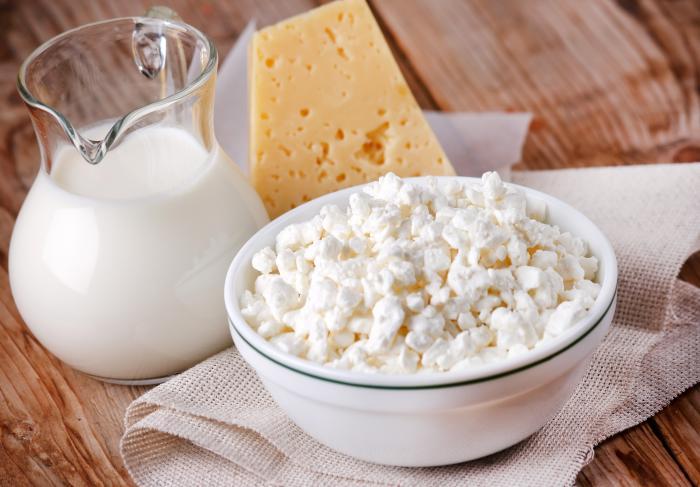
Calcium preparations
You can find many products at pharmacy kiosks. Women also choose among dietary supplements. The pharmaceutical market offers drugs from various manufacturers.
Dietary supplements
Doctors often suggest increasing calcium levels in the body by taking dietary supplements. The products come in the form of tablets, liquids and chewable capsules. The use of dietary supplements is recommended under the supervision of a physician.
"Calcium-D3 Nycomed"
The drug is approved for use by women during breastfeeding. They contain not only calcium. With the help of an additional complex, the microelement is absorbed better.
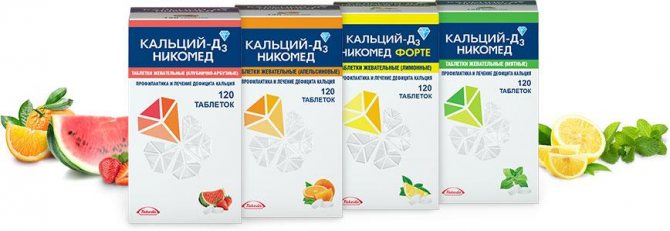
"Kalcemin"
During lactation, Calcemin is indicated. The drug is able to regulate phosphorus-calcium metabolism. The components of the medicine enter the child’s body through mother’s milk.
Calcium gluconate
Another effective drug designed to increase the level of trace elements in the body. Compared to other products, it has one significant drawback. Absorption of the substance occurs much more slowly.
Can and should a nursing mother take calcium: TOP 5 drugs and products
13.09.2018 | 20871
The development of the baby daily requires more and more minerals and vitamins, which cannot but be affected by the deficiency of substances in the mother’s body. A woman’s diet during this period is limited to anti-allergens with the exclusion of many healthy foods from the menu. The deficiency of elements must be replenished, including with Ca preparations.
Why does the body need calcium: beneficial properties and daily intake
Ca is the main building material of the body. The mineral participates in metabolic processes, strengthens the connective tissues of cells, ensuring the transmission of nerve impulses and the production of neurotransmitters.
Daily norm
The adult body's need for Ca depends on age and diet: for a person 19-50 years old - 1 thousand mg per day; up to 18 years – 1300 mg; after 50 years – 1500 mg. The Institute of Medicine recommends that breastfeeding mothers over the age of 18 consume 1,000 mg of calcium daily, the same as other adults [1].
When breastfeeding, the daily calcium intake is 1000 mg, since pregnant and nursing mothers do not require additional calcium.
Consequences of calcium deficiency in the body: what are the dangers?
During pregnancy, calcium costs doubled, resources were spent on the formation and growth of the fetal skeletal system. Therefore, in the first months after the birth of a child, a woman notices hair loss, brittle nails, weakness, cramps in the limbs, and bone pain. Symptoms are characterized by, an examination is required to prescribe therapy.
Hilary Flower researched this issue and found three important facts that came from Dr. Anne Prentice's research in recent years [2]:
- Restoration of bone mineral density occurs BEFORE weaning. Recovery begins after the baby's diet begins to be supplemented with other foods or liquids (the "partial breastfeeding phase"). By 12 months, breastfeeding mothers had fully restored their bone mineral density.
- If the mother becomes pregnant before full recovery, bone mineral density increases during pregnancy, the phenomenon is usually not observed.
- Mothers who tandem feed live similarly to their breastfeeding counterparts.
Consequences for the child
- Irreversible deformation of the lower extremities, sternum, frontal and parietal bones.
- Malocclusion.
- Pulmonary failure (due to curvature of the chest).
- Flat pelvis in girls.
- Myopia.
- Hypermobility of joints.
- Chronic anemia.
Lack of calcium in a newborn is manifested by asymmetry of the skull, softening of the boundaries of the fontanel, the formation of bumps on the crown of the head, and deformation of the legs. Ignoring symptoms leads to delayed physical and mental development of children.
According to the American Academy of Pediatrics policy statement on calcium requirements for infants, children, and adolescents [3]:
“There is no available evidence to suggest that exceeding the amount of calcium in the diet during the first 12 months of life is beneficial for achieving long-term increases in bone mineralization.
There is little data on the calcium requirements of children before puberty.
Calcium retention rates in young children are relatively low and increase slowly as puberty approaches.”
Products with calcium during breastfeeding (lactation): list
The Ca element plays a leading role in the physical development of the baby and is responsible for the formation of the skeleton, muscle tone, and neural connections. Calcium restores a woman’s body after childbirth, restores beauty to hair, strength to nails and teeth.
In the first 6 months, the mother loses 7% of bone tissue, this affects her well-being and appearance. Teeth often crumble, nails peel, and hair falls out. The changes are associated with hormonal changes and will subside in six months.
Calcium is then restored on its own by consuming nutritious foods.
It is not recommended to take calcium supplements without consulting your doctor. A woman often gets scared in the first time after giving birth and prescribes the drug herself.
But after six months, the concentration of the substance in the blood increases naturally and taking supplements provokes hypercalcemia.
The disease primarily threatens complex pathologies of the cardiovascular system.
When adjusting the menu, the tendency to allergic reactions in infants is taken into account. For example, it is better for a nursing mother to avoid drinking milk as a source of calcium for up to six months.
Recommended diet
- Low-fat cottage cheese, natural yogurt without additives.
- Hard varieties of cheese.
- Sesame - as an additive to dishes (5 tablespoons = daily requirement for Ca).
- Figs, prunes, dried apricots.
- Green vegetables and herbs - broccoli, cauliflower, lettuce, dill.
- Fruits - kiwi, green apples, bananas, pears (100 grams - 1% daily share).
- Bread (yeast-free, whole grain flour).
- Nuts from the third month - cashews, pine, walnuts.
For up to six months, pediatricians recommend excluding legumes, bread made from wheat and corn flour, and almonds from the diet.
Despite the high proportion of calcium in the composition, the products are extremely allergenic and unsafe for the baby.
In general, it is considered safe to take up to 2,500 mg of calcium per day, although this is more than necessary. If you're supplementing with more than 500 mg of calcium per day, split the dose so that you don't take it all at once—calcium absorption is best when a person consumes no more than 500 mg at a time. Excessive calcium intake can cause numerous side effects.
TOP 7 products by calcium content
The concentration of Ca in the blood of a healthy body is regulated by biological processes; drug support is required only in case of serious deficiencies.
During breastfeeding, calcium consumption doubles, but adjusting the menu quickly makes up for the costs: 80% of the mineral enters the body with dairy products.
For example, the concentration of Ca in a glass of yogurt is 230 mg, i.e. 1/6 of the daily requirement.
Table 1 - List of foods high in calcium
Product: Ca, mg/100 g:
| Hard cheeses | 550-1200 |
| Brynza | 560 |
| Sesame | 1150 |
| Almond | 254 |
| Sardines | 350 |
| Sprats | 300 |
| Rye bread | 323 |
For proper absorption of calcium, it is necessary to exclude animal fats and products containing oxalic and phytic acids (oatmeal, semolina, tea, coffee, soda). Otherwise, the mineral will not enter the blood serum and will be washed out of the body unchanged.
Parsley is rich in calcium, as well as cabbage and basil. Beans and dried apricots, in addition to their high mineral content, are also very useful during lactation.
The products purify milk from heavy metal salts and remove harmful substances from the body.
Calcium supplements for breastfeeding: list
Drug therapy is discussed with a doctor after diagnosis of disorders. To prevent deficiency, multivitamin complexes containing calcium and dietary adjustments are prescribed. In case of severe deficiency, a course of combined drugs with Ca and colecalciferol (vitamin D3) is recommended. Only in such a complex is the mineral absorbed in the body.
Products with calcium during breastfeeding (lactation): list
The Ca element plays a leading role in the physical development of the baby and is responsible for the formation of the skeleton, muscle tone, and neural connections. Calcium restores a woman’s body after childbirth, restores beauty to hair, strength to nails and teeth. In the first 6 months, the mother loses 7% of bone tissue, this affects her well-being and appearance. Teeth often crumble, nails peel, and hair falls out. The changes are associated with hormonal changes and will subside in six months. Calcium is then restored on its own by consuming nutritious foods.
Contraindications for taking Calcemin during breastfeeding

You can replace Kalcemin during breastfeeding with fermented milk products: cottage cheese, milk, sour cream
In addition to important indications for the use of Calcemin, there are a number of contraindications that are not recommended to be ignored. Avoid taking the drug while breastfeeding if:
- noticed an allergic reaction caused by disturbances in the digestive system (the nature of the stool changed, vomiting and nausea appeared);
- there are symptoms of hypercalcemia in the newborn;
- liver, kidney failure;
- urolithiasis in the infant or mother;
- a large amount of calcium according to the results of laboratory tests of urine and blood.
In other cases, taking Calcemin during breastfeeding is acceptable for the prevention of osteoporosis in women, congenital rickets, and dental problems in mother and child.
I stand, humming: “Why, why, why is it so easy for me?” From the fact that you are walking down the alley. Frosya (6 years old) continues with a sly face: “And you chew a big bun.”
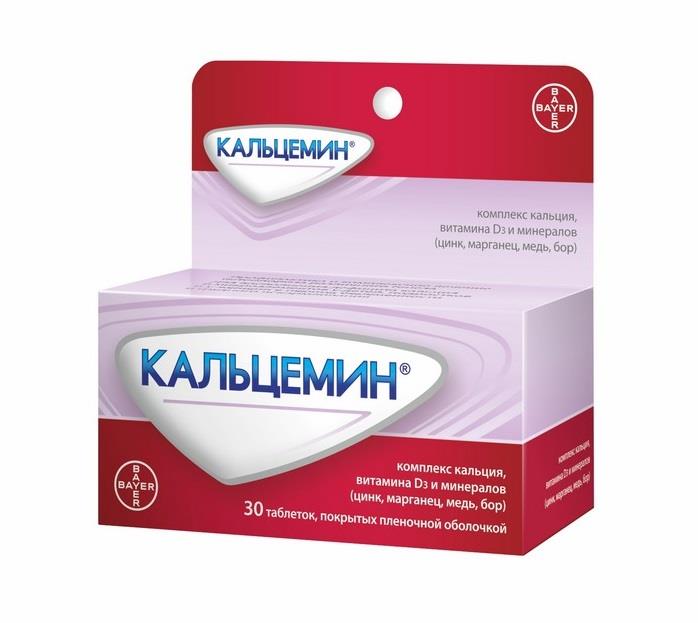
Calcemin should be taken for breastfeeding in combination with the necessary vitamins.
Side effects from taking the drug with calcium while breastfeeding are permissible only in case of individual intolerance to its components or in case of an overdose. In the second case, symptomatic treatment is carried out, aimed at washing the stomach and prescribing a special diet with products that do not contain the D3 component.
The role of calcium in the body, the consequences of its deficiency
This microelement is the basis of our bone tissue, as well as teeth, nails, and hair. It also takes part in the process of hematopoiesis, influences its coagulation, the condition of blood vessels and performs other important functions. How is calcium deficiency detected during breastfeeding? Danger signs:
- brittle nails;
- dull, lifeless hair;
- nagging joint pain;
- skin rash of unknown origin;
- dry skin, aging;
- crumbling and deteriorating teeth.
In a child, calcium deficiency is diagnosed by developing rickets, late teething, and leg cramps. But these, of course, are extreme situations that require immediate medical attention.
In most cases, it is best for a nursing mother to obtain calcium from food, following the rules of a healthy diet and adjusting the diet. But this is possible if there are no allergic reactions and restrictions associated with them.
If you have a calcium deficiency, you will understand this by the signals that your weakened body will give you. These symptoms are common to all women, regardless of whether she is breastfeeding or not:
- brittle nails and hair;
- hair loss;
- crumbling of teeth;
- dry skin, possibly even premature aging;
- the appearance of acne on the skin;
- joint pain;
- increased fatigue;
- poor concentration;
- cramps and muscle pain;
- bleeding gums;
- the appearance of caries.
Read more: Alphabet anti-stress composition and benefits of vitamins instructions
The condition, of course, is unpleasant, but easily fixable. For girls with these symptoms, a detrimental effect on their appearance, which is difficult to miss, can be a huge disaster. And for women who have become mothers, the main reason for urgent measures to solve the problem will be the consequences of calcium deficiency for their baby.
Why does the body need calcium?
Ca is the main building material of the body. The mineral participates in metabolic processes, strengthens the connective tissues of cells, ensuring the transmission of nerve impulses and the production of neurotransmitters.
Benefit
- Strengthens bones, teeth, hair, nails.
- Reduces blood cholesterol levels.
- Normalizes blood pressure (in combination with magnesium and potassium).
- Helps damaged tissues heal.
- Increases blood clotting (increases the effect of vitamin K).
- Strengthens the immune system.
- Restores acid-base balance.
Calcium is necessary for the mental and physical development of a child’s fragile body.
According to statistics, 50% of women experience mineral deficiency after childbirth.
Combination calcium supplements are recommended to help nursing mothers. The active substance passes into breast milk, providing the baby with sufficient amounts of the element and healthy development.

Part of the mineral enters the body daily with food. You need to drink calcium strictly according to the instructions, taking into account the concentration of the substance in the tablet, to avoid an overdose.
Daily norm
The adult body's need for Ca depends on age and diet: for a person 19–50 years old, 1 thousand mg per day, up to 18 years old - 1300 mg, after 50 years old - 1500 mg.
When breastfeeding, the daily calcium requirement is 1500 mg; deficiency of the element should be excluded.
In the first 6 months, the body restores the circulatory, endocrine, and excretory systems, so every 8th patient after childbirth needs to take the mineral.




